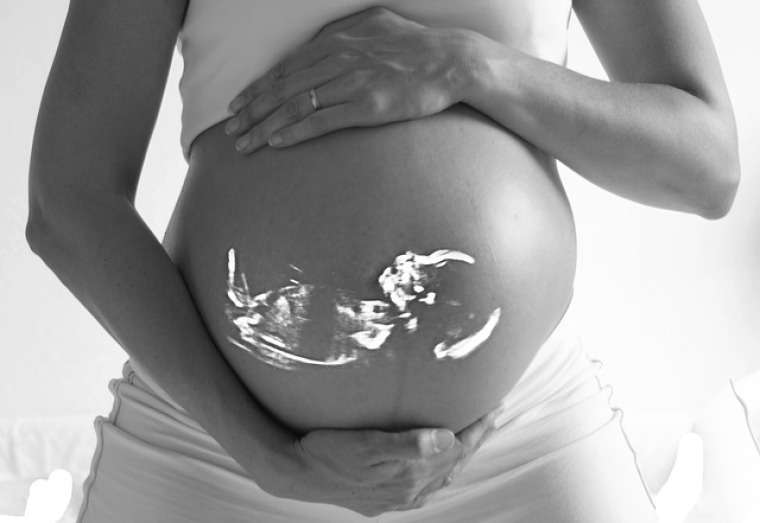Distress during pregnancy raises risk of schizophrenia genes, study finds

Scientists have discovered another crucial reason to ensure that moms have a healthy pregnancy and it's tied to the heightened risks of developing schizophrenia genes in the fetus.
Pregnancy distress or complications not only trigger health problems like high blood pressure in mothers. Apparently, they also affect the placenta's health by signalling to the body to turn on the genes tied to schizophrenia, according to the findings published in the journal Nature Medicine.
Schizophrenia is a severe type of mental disorder that impacts a person's thought process, behavior and feelings. Schizophrenic people have a different view of the reality around them and the symptoms can begin manifesting in their teens.
Previous studies have shown that schizophrenia development is at least 60 to 70 percent based on the genes. But how these genes are activated can depend on the health of the mother's pregnancy.
Experts from the Lieber Institute for Brain Development in Maryland dug deeper to find the links. Researchers looked into the data of 2,800 adults from different parts of the world who were diagnosed with schizophrenia.
From this data, 20 percent were revealed to have mothers with pregnancy complications raging from high blood pressure, preeclampsia, emergency C-section and poor fetal growth. Researchers also learned that those with high genetic risks, coupled with the pregnancy complications, increased their schizophrenia genes risk five times more.
The study also showed that the more that mothers experienced pregnancy distress, the more the organ turned on those genes.
The placenta is central to fetus development as the organ provides the nutrients like food and oxygen, and cleans up waste in the mother's blood. When under duress, the placenta presents symptoms like inflammation.
"For the first time, we have found an explanation for the connection between early life complications, genetic risk, and their impact on mental illness and it all converges on the placenta," study author Dr. Daniel Weinberger said.
This article was originally published in Christian Today and is re-published here with permission
 Christians don't have to affirm transgenderism, but they can’t express that view at work: tribunal
Christians don't have to affirm transgenderism, but they can’t express that view at work: tribunal Archaeology discovery: Medieval Christian prayer beads found on Holy Island
Archaeology discovery: Medieval Christian prayer beads found on Holy Island Presbyterian Church in America votes to leave National Association of Evangelicals
Presbyterian Church in America votes to leave National Association of Evangelicals Over 50 killed in 'vile and satanic' attack at Nigerian church on Pentecost Sunday
Over 50 killed in 'vile and satanic' attack at Nigerian church on Pentecost Sunday Ukrainian Orthodox Church severs ties with Moscow over Patriarch Kirill's support for Putin's war
Ukrainian Orthodox Church severs ties with Moscow over Patriarch Kirill's support for Putin's war Islamic State kills 20 Nigerian Christians as revenge for US airstrike
Islamic State kills 20 Nigerian Christians as revenge for US airstrike Man who served 33 years in prison for murder leads inmates to Christ
Man who served 33 years in prison for murder leads inmates to Christ


 Nigerian student beaten to death, body burned over ‘blasphemous’ WhatsApp message
Nigerian student beaten to death, body burned over ‘blasphemous’ WhatsApp message 'A new low': World reacts after Hong Kong arrests 90-year-old Cardinal Joseph Zen
'A new low': World reacts after Hong Kong arrests 90-year-old Cardinal Joseph Zen Iran sentences Christian man to 10 years in prison for hosting house church worship gathering
Iran sentences Christian man to 10 years in prison for hosting house church worship gathering French Guyana: Pastor shot dead, church set on fire after meeting delegation of Evangelicals
French Guyana: Pastor shot dead, church set on fire after meeting delegation of Evangelicals ‘Talking Jesus’ report finds only 6% of UK adults identify as practicing Christians
‘Talking Jesus’ report finds only 6% of UK adults identify as practicing Christians Mission Eurasia ministry center blown up in Ukraine, hundreds of Bibles destroyed: 'God will provide'
Mission Eurasia ministry center blown up in Ukraine, hundreds of Bibles destroyed: 'God will provide' Church holds service for first time after ISIS desecrated it 8 years ago
Church holds service for first time after ISIS desecrated it 8 years ago Burger King apologizes for 'offensive campaign' using Jesus' words at the Last Supper
Burger King apologizes for 'offensive campaign' using Jesus' words at the Last Supper Uganda: Muslims abduct teacher, burn him inside mosque for praying in Christ’s name
Uganda: Muslims abduct teacher, burn him inside mosque for praying in Christ’s name